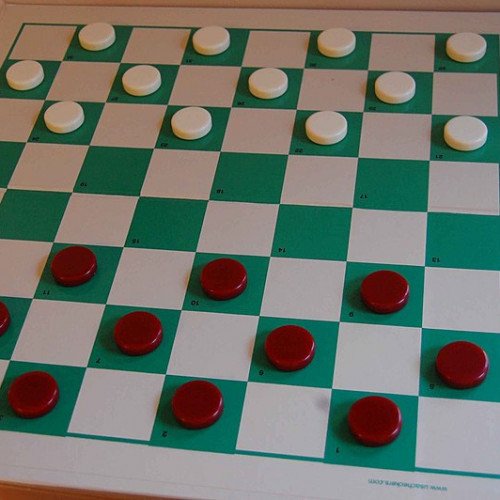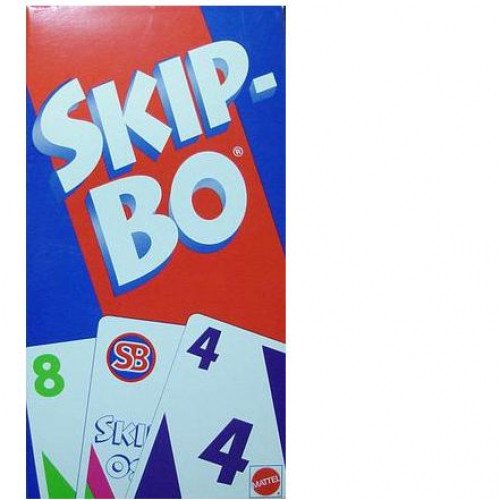CHECKERS VS SKIP-BO

CHECKERS
Draughts (/drɑːfts, dræfts/; British English) or checkers (American English) is a group of strategy board games for two players which involve diagonal moves of uniform game pieces and mandatory captures by jumping over opponent pieces. Draughts developed from alquerque. The name 'draughts' derives from the verb to draw or to move, wheras 'checkers' derives from the checkered board which the game is played on. The most popular forms are English draughts, also called American checkers, played on an 8×8 checkerboard; Russian draughts, also played on an 8×8, and international draughts, played on a 10×10 board. There are many other variants played on 8×8 boards. Canadian checkers and Singaporean/Malaysian checkers (also locally known as dum) are played on a 12×12 board. English draughts was weakly solved in 2007 by a team of Canadian computer scientists led by Jonathan Schaeffer. From the standard starting position, both players can guarantee a draw with perfect play. Draughts is played by two opponents, on opposite sides of the gameboard. One player has the dark pieces; the other has the light pieces. Players alternate turns. A player may not move an opponent's piece. A move consists of moving a piece diagonally to an adjacent unoccupied square. If the adjacent square contains an opponent's piece, and the square immediately beyond it is vacant, the piece may be captured (and removed from the game) by jumping over it. Only the dark squares of the checkered board are used. A piece may move only diagonally into an unoccupied square. When presented, capturing is mandatory in most official rules, although some rule variations make capturing optional. In almost all variants, the player without pieces remaining, or who cannot move due to being blocked, loses the game.
Statistics for this Xoptio

SKIP-BO
Skip-Bo is a commercial version of the card game Spite and Malice, a derivative of Russian Bank (also known as Crapette or Tunj). In 1967, Minnie Hazel "Skip" Bowman (1915–2001) of Brownfield, Texas, began producing a boxed edition of the game under the name SKIP-BO. In 1980 the game was purchased by International Games, which was subsequently bought by Mattel in 1992. A mobile version of the game for iOS was released by Magmic in September, 2013. There is a new version called "SKIP-BO Mod" that comes in a white and blue case. Two to four people can play at a time as individuals, or, six or more players in teams (no more than three partnerships). The object of the game is to be the first player or team to play out their entire stock pile(s). The player with the middle age goes first. Each player is dealt 30 cards (recommended 10-15 for faster gameplay) for their pile with only the top card visible, and a hand of five cards, and the remaining cards are placed face down to create a common draw pile. The shared play area allows up to four build piles, which must be started using either a "1" card or a Skip-Bo, and each player also has up to four personal discard piles. Each turn the active player draws until they have five cards in hand, though there are cases of not drawing more cards to equal five cards, instead doing a draw of a certain number of cards. They must play either the next card in sequential order or a wild Skip-Bo card, using either cards in hand, the top card of their stock pile, or the top card of any of their four discard piles. If the player can play all five cards from their hand, they draw five more and continue playing. When no more plays are available, the player discards one card to either an empty discard pile or on top of an existing one and play passes to the next player. When a build pile reaches 12, it is removed from the board and that space becomes empty for another pile to be started; play continues until one player has played their final start card.